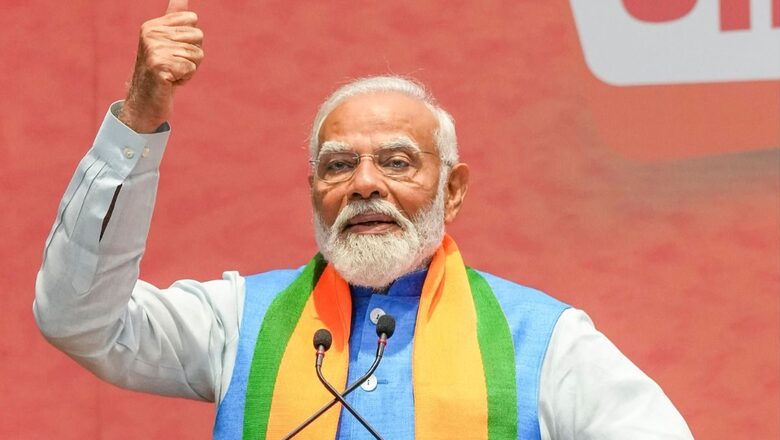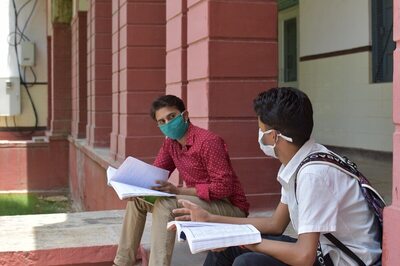
views
Over ten years, the BJP has acquired an aura of invincibility. Between 2014 and 2024, the Narendra Modi-anchored BJP has grown into the world’s largest political party. It is also by far India’s richest. But more than that, it has handed out resounding defeats to the Opposition in both the 2014 and 2019 Lok Sabha contests. Not since the Rajiv Gandhi-led Congress in 1984 has a political party won such commanding majorities in the Lok Sabha. The coalition era has been relegated to a footnote in time. These statements are not mere platitudes.
There’s hard data that gives you an idea of the numeric and operational advantage the mandate has given to the BJP. In the just concluded 17th Lok Sabha, the BJP passed 221 Bills, the most since the 14th Lok Sabha. 58 per cent of the Bills were passed within two weeks of their introduction. Only 16 per cent of the total Bills introduced in the Parliament since 2019 have been referred to Standing Committees for further critical examination. It’s almost as if the Opposition, excuse the pun, exists only to make up the numbers.
So enervating has been the impact of the BJP’s dominance that many Opposition parties have privately conceded that the BJP is set for an easy win in 2024. The prime minister is so confident that he has announced with trademark braggadocio that he expects “Iss Baar 400 paar”.
Only one government in the history of democratic India has ever crossed the 400-seat barrier and that was the Rajiv Gandhi-led Congress administration, which in 1984, was riding on the Indira sympathy wave.
If the BJP is so far ahead of the competition, why – you are entitled to ask – is the party beginning its quest for a third term in office as an underdog? Indeed, the assertion is counterintuitive. But here are three reasons why the BJP begins the impending 1st phase on the back foot and why this round remains a tricky obstacle course in Modi’s quest for absolute dominance.
First, of all the phases, the BJP is the shakiest across the 102 constituencies in Phase 1. The BJP has only won 50 per cent of the seats up for grabs in Phase 1 in 2019. In fact, it contested only 60 seats across these 102 constituencies in 2019. Admittedly, it won 40 of the 60 contests which is a creditable conversion ratio. But even so, if it wants to get close to the 400-seat mark, it needs to win big in this phase and too on seats where it has never won.
The party is contesting 17 additional seats this time around but a majority of these are in Tamil Nadu where the BJP has only ever won one seat. If it doesn’t win more seats in Tamil Nadu, it will be very difficult for the party to go beyond the 303 seats it already has in Parliament. So can the BJP pick up additional seats it has never won? This brings us to consider a second set of data points.
In this phase, there are only nine super-strong seats. That is seats won by the BJP or the Congress in all three Lok Sabha elections since 2009. Of these nine, the BJP has six – Jabalpur, Churu, Bikaner, Sidhi, Pilibhit, and Balaghat. The Congress has held the remaining three – Kaliabor, Chhindwara, and Shillong.
Beyond the strongholds, there are 21 swing seats across 102 constituencies. That is to say almost a fifth of the seats have changed hands. To be specific, the same party won these seats in 2009 and 2019 but not in 2014. These 21 seats could go either way and given that the BJP can only count six seats as bastions, it can’t be sure of maintaining its conversion rate. This is why phase 1 is not only unpredictable but also puts all parties on an equal footing.
Third, even in vote share terms, the BJP’s dominance isn’t as absolute across this phase. According to the data, in 60 of the 102 Phase-1 seats that the BJP contested in 2019, the party secured vote shares above 50 per cent in 34 seats, 30-50 per cent in 19 seats, and below 30 per cent in seven seats.
The Congress isn’t far behind. It contested 65 of the 102 seats and in these, it polled above 50 per cent votes in 10 seats. In 36 seats, it secured between 30 and 50 per cent of the votes polled. The problem for the Congress is that it has a larger share of weaker seats than the BJP. It polled only between 10 to 30 per cent of the votes in nine seats, and below 10 per cent in 10 seats. If it is able to pull in anti-incumbency votes against the BJP in these seats, it might pull off a few surprises.
The third party of significance in the phase is the DMK. Of the 24 seats that the DMK contested (all in Tamil Nadu) in 2019, it won a huge chunk – 19 seats with a vote share above 50 per cent. In five others, it polled between 30 and 50 per cent of the votes. This means that the BJP will have to pull off a miracle if it has to wrest seats from the DMK.
Despite facing significant challenges in Phase 1, the BJP remains a formidable contender due to its strong organisation and leadership.
Views expressed in the above piece are personal and solely those of the author. They do not necessarily reflect News18’s views.


















Comments
0 comment